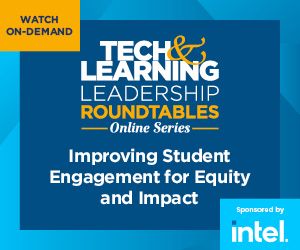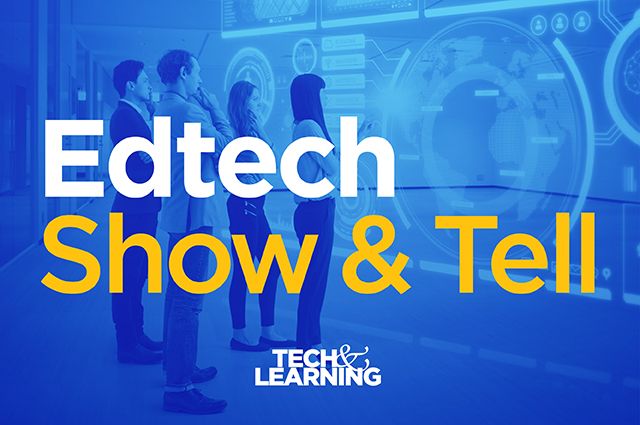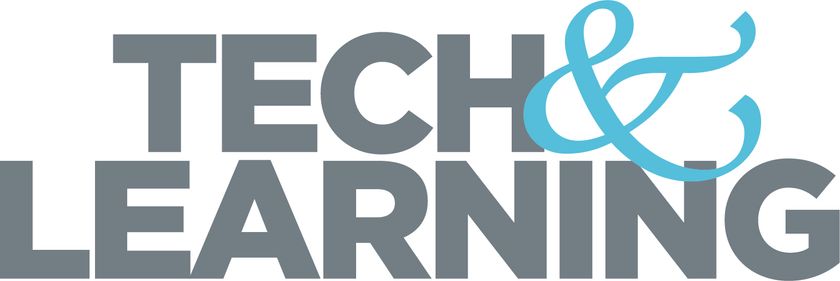Research-Informed Practices for Blended Learning
Education leaders discuss research-informed practices to help district leaders prioritize and focus their resources

When schools shut down last year, districts scrambled to ensure every student had a device, but, in many cases, there was little time to create an informed plan to support effective implementation.
In this recent webinar moderated by Dr. Kecia Ray, attendees heard from education leaders about research-informed best practices to help district leaders prioritize and focus their resources on strategies that will bring the most impact in equitable digital learning environments.
“The pandemic has exacerbated existing barriers and highlighted the inequities that exist in schools, especially in our lower income, most challenged communities,” said Ray. “There’s plenty of research out there to lean into to overcome the effects of Covid-19.”
The on-demand version of this webinar is available here
Key Takeaways
Speaking Up. “The idea of evidence is important not only to take a look at where we did see changes in activities but also in terms of changes and beliefs and values,” said Julie A. Evans, CEO, Project Tomorrow, a national education nonprofit that produces the annual Speak Up education technology usage report. Project Tomorrow has surveyed more than 100,000 K-12 students, parents, and educators since the beginning of the pandemic and remote learning, and have gained valuable data to help shape learning.
Among Project Tomorrow’s insights:
- Last year saw a dramatic increase in students being assigned digital learning devices. For example, there was an 80% increase in the number of Chromebooks given to students in upper elementary grades and middle school.
- The use of digital classroom content grew as well, including a 23% increase in teachers reporting use of an online curriculum, and a 41% increase in teachers use of animations, movies, and videos to support learning.
- The idea of teacher-student communication has changed, with an increased use of text messages, with more than two-thirds of middle and high school students reporting that they text with their teachers.
- The amount of teachers who wanted to take some type of professional development course on how to teach online increased 120%, as many are still not comfortable with using it in instruction.
“We also know that equity is beyond just digital access and so it's important to talk more about those equity considerations,” said Evans. “We also know that this new role of parents as co-teachers is something that the genie is not going to go back in the bottle on. So we need to think about how to continue to engage with the parents in these new roles that they've taken on during school closures or school interruptions, keep them informed and also keep them involved.”
Tech & Learning Newsletter
Tools and ideas to transform education. Sign up below.
Using Tech to Close Gaps. “The pandemic has been the first time we’ve done remote learning at scale, and we have a lot to learn from this experience, including looking at some of the inequities of the system,” said Barbara Means, Executive Director of Learning Sciences Research for Digital Promise. For example, having an internet connection might work fine for one student, but maybe not if there are three students in the same home sharing devices and access. Younger students are also especially vulnerable to learning loss versus older students, who are able to work more independently.
The support from school leaders while trying to implement technology is also critical, said Means. Having coaches and good models can also help teachers learn in a non-punitive and peer-supported way. “We have to be ready for the next interruption,” said Means. “I think we’re seeing some of ‘If we can just find the right product or solution, we’ll be okay.’ And that doesn’t work.” Means stressed that we’re dealing with a complex problem that is going to require planning, setting goals, implementing solutions and ‘the personal touch’ of the teacher, and then using data collected along the way to drive improvement.
Additional Project Tomorrow resources:
- 90 Days That Changed K-12 Teaching & Learning
- 2020 Congressional Briefing: National Release of Speak Up 2019-20 data findings
- Equity in Educational Opportunities
- The Impact of Remote E-Learning on K-12 Teachers’ Professional Learning Needs
Lunch 'n Learn with Tech & Learning
We hope you can join us for these regular District Leadership Lunch ‘n Learn Roundtable series, hosted by Dr. Kecia Ray. In these events, districts from across the U.S. share their strategic plans, the challenges they are facing, and the creative solutions they are using to support students and teachers. Register for our upcoming events here.
More from T&L: Lunch 'n Learn roundtable recaps
Ray Bendici is the Managing Editor of Tech & Learning and Tech & Learning University. He is an award-winning journalist/editor, with more than 20 years of experience, including a specific focus on education.










